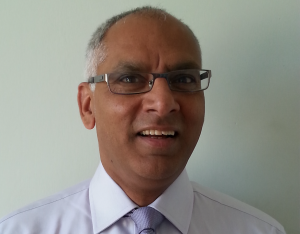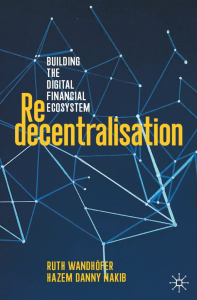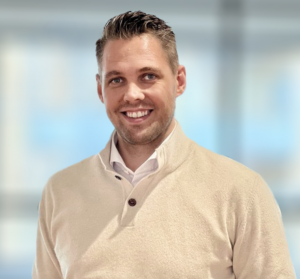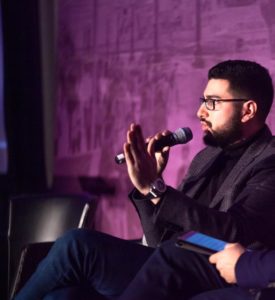Welcome to Mob76 Outlook and our readers, Jeff Green
No worries. Very happy to be here, thanks for the invitation.
We’ll go into your career later, but you’ve launched a new podcast?
Yes, Indeed. The Making The Cake Bigger podcast brings real people with different stories, backgrounds and experiences into the investment committee room.
This is an environment that includes all humans, not just those born in the right place at the right time and where the next founders of Google, Facebook or OpenAI will emerge.
Making The Cake Bigger is a podcast that sets out to solve the problem of how to get a broader diversity of people into both public and private organisations by harnessing a more diverse set of experiences to bring greater innovation and ingenuity.
We want to help solve the world’s problems by giving everybody a slice of the cake, not just the Fat Cats who have been eating too much for too long.
What are the current problems it is addressing?
It starts with educating and shining a light on inequality whether that be financial, health, sport, gender, race or social and how to raise the tide for all.
The investment sectors of private equity, hedge venture capital and government institutions must bring ‘different thinking’ talent into the investment committee rooms and will produce better innovation, better products for wider markets and bigger financial returns.
We want to bring more financially disadvantaged people into the sector of responsible investing, changing the face of the investment committee room to people from the so-called wrong side of the tracks and not based on what school they attended or their parents’ network or wealth.
The next founder of SpaceX/Amazon/Meta/OpenAI/Google will come from unexpected places, ones that were previously excluded.
No small task, how do you plan on going to do this?
I am a very experienced angel investor and as a man of colour I am familiar with the issues faced as an immigrant over the last 50 years and starting at the bottom of the career ladder.
I had to do it the hard way, but I’m now in a position to give back. The podcast is the figurehead of my foundation and the mission is simple. More education of opportunities and access to those opportunities in a fair, transparent and scalable way.
So you focus on diversity essentially?
I’m not a great fan of that word, I think it’s over-used. While diversity has become the buzzword for bringing all types of people into the working world, it is more than that.
While it is easier now for people of all backgrounds to be embraced by working practices and employment, there is still a huge lack of financial equality in spite of diversity improvements and too many are currently not part of the decision-making process.
In the world of investing, more women founders from the emerging world seeking investment, are asked more negative questions and often in lower margin, lower-risk businesses. We need to get better and fairer at helping more diverse founders being funded.
We need to avoid Groupthink; that is the mission here. The old boys’ network is dead. The decision-makers and changemakers of the new world are coming from different places that are not incestuous, familiar and same. The old model is no longer fit for purpose; the world has moved on.
So what do you think constitutes fairness and success?
There is an emerging body of research looking at what determines success, the role of luck and circumstances, and how this is linked to inequality and equality of opportunity.
This is very much a ‘live’ and emerging area as researchers develop new techniques and access to a greater number of data sources and is likely to be significant in terms of our understanding of ‘what works’ to improve ‘fairness’ or greater equity at a societal level.
Moreover, most researchers and social scientists agree that policy matters in terms of inequality – it is always a political choice with policy design significantly influencing the scale and nature of inequality.
It’s a tricky subject that we’re addressing.In terms of tackling inequality the simplistic ideological gap is between a ‘functional’ or individualist approach and a conflict or collectivist approach but there is no one ‘theory’ that all sociologists are willing to agree on.
You’ve had more than five decades in investment. So this experience is crucial in making the cake bigger?
I’m an angel investor who has made a lot of investments across a multitude of sectors, but like the podcast, I’m focusing on providing a bigger slice for everybody, not just the elite.
Even with such an unlevel playing field, there are some wonderful exceptions of entrepreneurs and individuals overcoming adversity. They are triumphed on the podcast and I can feel the landscape changing as innovation, access, and AI technology levels that playing field.
The world needs people who think differently and Making The Cake Bigger is about giving them the opportunity and education.
That’s inspirational, Jeff, thanks for sharing your story with our readers
My pleasure, we all have to work a bit harder now to create a better world for everybody… and to do something about it, not just talking.





